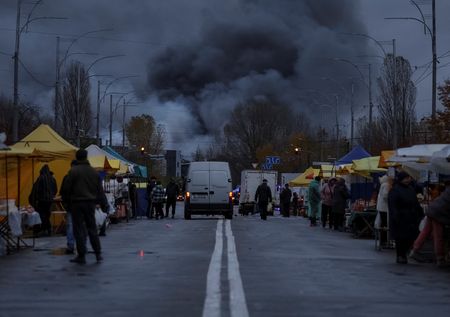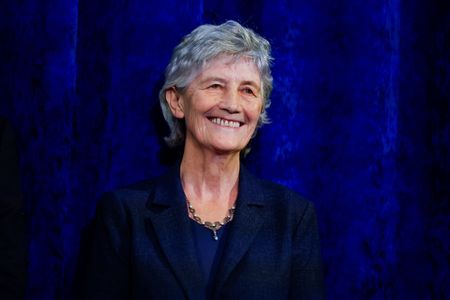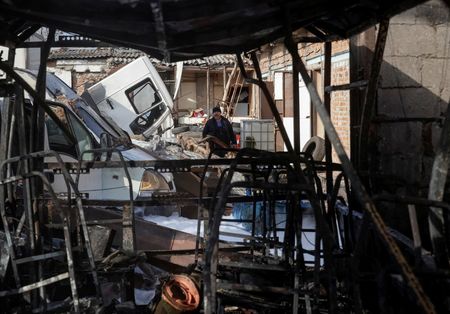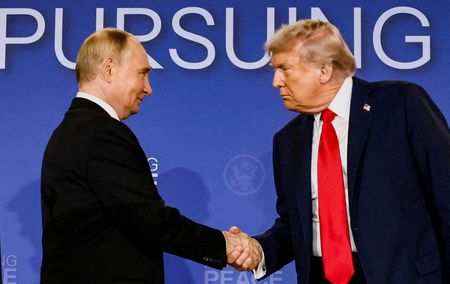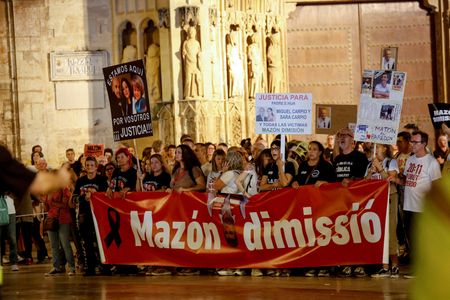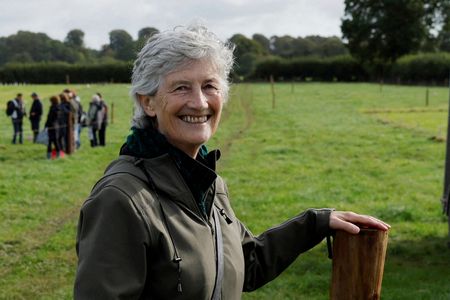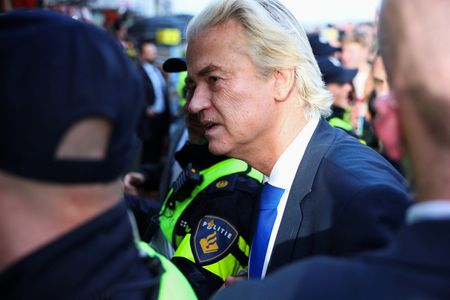By Miranda Murray
BERLIN (Reuters) – Forty years after the release of French director Claude Lanzmann’s seminal work “Shoah”, a new documentary at the Berlin Film Festival aims to make the nine-hour-plus opus about the Holocaust relevant for a new generation.
“All I Had Was Nothingness,” by director Guillaume Ribot, wades through hundreds of hours of unreleased footage from the original filming to turn the focus on Lanzmann and his years-long quest to create “Shoah”.
Lanzmann, who died in July 2018 at the age of 92, had started working on an oral history of the Holocaust in the mid-1970s, conducting a mass of interviews with survivors, perpetrators and witnesses to the murder of 6 million Jews by the Nazis.
In all he spent 11 years making “Shoah”, the Hebrew word for the Holocaust, which was released in 1985.
“We have to keep making films. We have to keep talking about this,” Ribot told Reuters when asked about Holocaust remembrance.
Ribot, who has worked on several documentaries about the Holocaust, added that he wanted his new film to appeal in particular to young people who may not be familiar with “Shoah”.
“The way I’ve written my film, in the form of a police investigation, a road movie, a man at work, shows that with intelligence, perseverance and this mad desire to make cinema, you can pass it on,” he said.
The documentary gives intimate glimpses of the making of “Shoah,” such as a shirtless Lanzmann being fitted for a hidden microphone or being chastised by nosy German neighbours.
Ribot narrates the film with excerpts from Lanzmann’s memoir “The Patagonian Hare,” recounting his ongoing struggles with funding, the project’s purpose and fruitless interview attempts.
“‘Shoah’ is a film from the pre-digital era. Everything was expensive, everything was difficult,” said Ribot.
“That, along with Claude Lanzmann’s courage and stubbornness, had a huge influence on the film,” he added.
Lanzmann used hidden microphones and cameras to record interviews without consent and even concocted a fake identity to mask his Jewish surname in order to coax unwilling subjects who had worked at the death camps into agreeing to speak to him.
Such practices are considered unethical for journalists.
Lanzmann “always said that he makes cinema. In fact, he refused to be categorized as a documentarian,” said Ribot.
“Today, how do whistle-blowers do it? They don’t ask for the opinion of people in big companies, etc, to do the Panama Papers and other things. They just go out and do things, and try to get at the truth,” said Ribot.
“Lanzmann made some great films, but he brought out the truth through the words of witnesses, victims and killers.”
(Reporting by Miranda Murray; Editing by Hugh Lawson)


